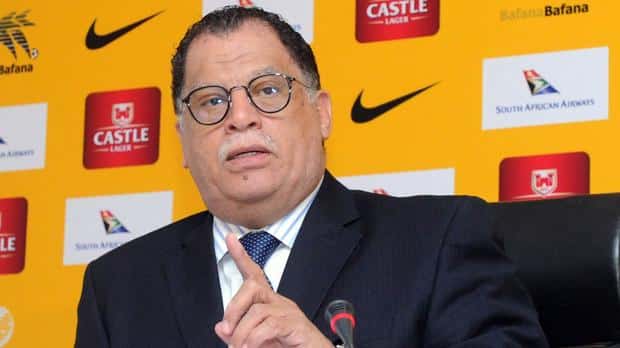Safa president Danny Jordaan is looking to put a turbulent few months behind him by focusing on the future after being re-elected in his role this past weekend.
Jordaan has been under the media spotlight over the past few months for a number of reasons. First, it was the sexual abuse claims made by Jennifer Ferguson which saw the involvement of the chairman of the Premier Soccer League Irvin Khoza – a matter that is still unresolved. Then it was the infamous squabble between him and former referee Ace Ncobo, who was running as his opposition in the elections.
Ncobo pulled out of the elections, claiming that they were unconstitutional. This prompted Fifa’s intervention as the elections were postponed until this weekend so that all the due processes could be completed.
Despite the cloud hanging over his head, Jordaan retained his seat by a majority – getting 234 of 246 votes, after his challenger Ncobo walked out claiming he had been threatened by a delegate and stuck to his stance that the electoral process was flawed.
‘Well, I hope that things will settle down in South African football and we focus on the future, particularly the period 2018-22,’ Jordaan said during a brief chat with the media at the Sandton Convention Centre on Saturday.
‘Now it’s the Fifa congress [next month] and the World Cup in Russia, and the period between Russia and the 2022 World Cup in Qatar – that’s where we are going to focus, but also South Africa last hosted the World Cup in 2010 and we want to look at how do we strengthen women’s football, for example, in the country,’ he said.
‘We have seen from the officials’ position that we hardly had one woman on the national executive, but we have a few now.’
Ria Ledwaba, with 220 votes, led the national list alongside the likes of Natasha Tsichlas (198) and Emma Hendricks (196).
‘What has happened on the ground from the LFAs [Local Football Associations] and regional level, we have 810 women serving football at grassroots level, so that is a fundamental shift in the role of women in football.
‘Secondly, from a player perspective, we have seen an increase in women footballers from 212,000 to 456,000 and we want to strengthen that,’ he concluded.





